
Coyoacán: A Charming Oasis in Mexico City
Coyoacán, often referred to as the cultural heart of Mexico City, offers a delightful escape from the bustling metropolis. This historic neighbourhood is brimming with colonial charm, cobblestone streets, and vibrant markets. It is best known for its rich artistic heritage, being the home of the famous artist Frida Kahlo. Visitors can immerse themselves in the vibrant arts scene by visiting the Frida Kahlo Museum, also known as La Casa Azul, where they can explore her life and work in the very house she lived in. Coyoacán is also a haven for food lovers, with its abundance of traditional Mexican eateries, street food stalls, and cozy cafes. The local markets, such as Mercado de Coyoacán, offer a sensory overload with their colourful displays of fresh produce, handmade crafts, and delicious local treats. The main square, Jardín Centenario, is a perfect spot to relax and people-watch, surrounded by historic buildings and a lively atmosphere. In addition to its cultural and culinary offerings, Coyoacán boasts beautiful green spaces like Viveros de Coyoacán, a large park ideal for a leisurely stroll or a morning jog. The neighbourhood is also known for its vibrant festivals and events, which reflect the rich cultural tapestry of the area. Whether you are seeking art, history, food, or simply a tranquil retreat, Coyoacán promises an unforgettable experience for every visitor.
Local tips in Coyoacan
- Visit La Casa Azul early in the morning to avoid long lines and enjoy a more peaceful experience.
- Try the churros at Churrería El Moro, a local favorite that's been serving delicious churros and hot chocolate since 1935.
- Explore the local markets for unique souvenirs and fresh local produce. Mercado de Coyoacán is particularly popular.
- Take a leisurely stroll through Viveros de Coyoacán, especially on a weekday when it's less crowded.
- Check the local event calendar for festivals and cultural events happening during your visit for an authentic experience.
Coyoacán: A Charming Oasis in Mexico City
Coyoacán, often referred to as the cultural heart of Mexico City, offers a delightful escape from the bustling metropolis. This historic neighbourhood is brimming with colonial charm, cobblestone streets, and vibrant markets. It is best known for its rich artistic heritage, being the home of the famous artist Frida Kahlo. Visitors can immerse themselves in the vibrant arts scene by visiting the Frida Kahlo Museum, also known as La Casa Azul, where they can explore her life and work in the very house she lived in. Coyoacán is also a haven for food lovers, with its abundance of traditional Mexican eateries, street food stalls, and cozy cafes. The local markets, such as Mercado de Coyoacán, offer a sensory overload with their colourful displays of fresh produce, handmade crafts, and delicious local treats. The main square, Jardín Centenario, is a perfect spot to relax and people-watch, surrounded by historic buildings and a lively atmosphere. In addition to its cultural and culinary offerings, Coyoacán boasts beautiful green spaces like Viveros de Coyoacán, a large park ideal for a leisurely stroll or a morning jog. The neighbourhood is also known for its vibrant festivals and events, which reflect the rich cultural tapestry of the area. Whether you are seeking art, history, food, or simply a tranquil retreat, Coyoacán promises an unforgettable experience for every visitor.
Iconic landmarks you can’t miss
Coyoacan Market
Immerse yourself in the vibrant culture and flavors of Mexico at Coyoacan Market, a must-visit destination for food lovers and cultural enthusiasts.
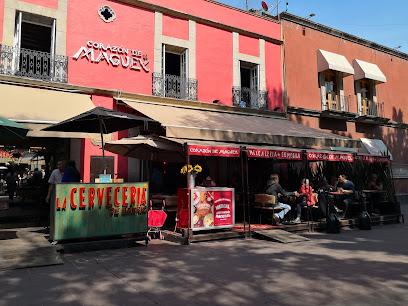
Jardín Hidalgo
Discover the enchanting charm of Jardín Hidalgo in Coyoacán, a perfect blend of nature, culture, and local flavors in Mexico City.
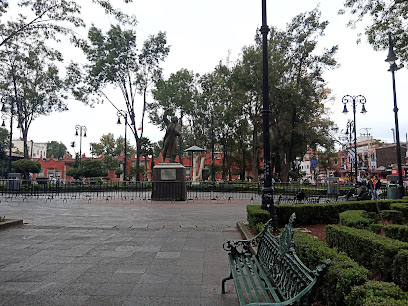
Jardín Centenario
Discover the tranquility and cultural richness of Jardín Centenario, a beautiful city park in Coyoacán, Mexico City, perfect for relaxation and exploration.
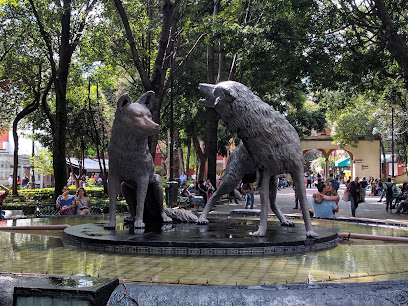
Plaza Coyoacán
Explore the cultural heart of Coyoacán at Plaza Coyoacán, where vibrant markets, rich history, and authentic Mexican flavors come together.
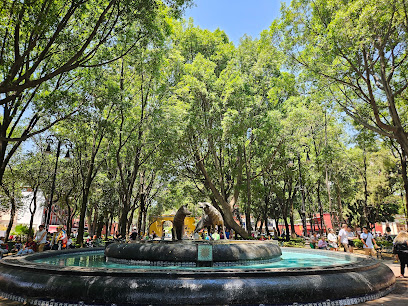
Frida Kahlo Park
Explore the artistic landscape of Frida Kahlo Park, a serene state park in Coyoacán that celebrates the cultural spirit of Mexico amidst lush greenery.
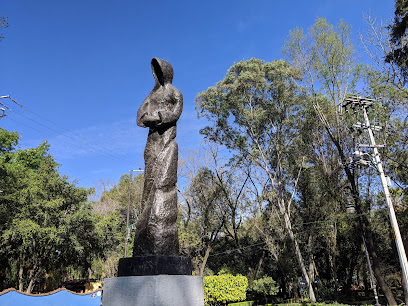
Antiguo Palacio De Coyoacán
Experience the rich flavors and vibrant culture of Coyoacán at Antiguo Palacio De Coyoacán, where authentic Mexican cuisine meets historic charm.
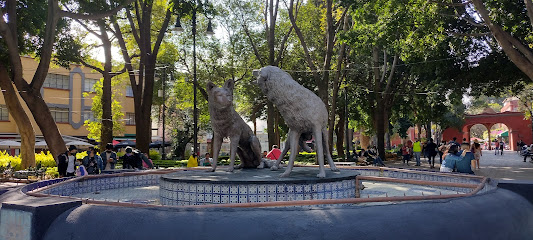
Hernan Cortés' House
Uncover the rich history of Hernán Cortés' House in Coyoacán, a captivating tourist attraction blending culture and heritage.
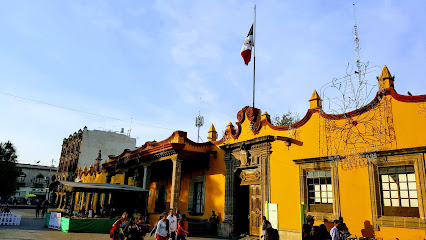
Letras COYOACÁN
Explore the cultural heart of Coyoacán, where art, history, and vibrant local life come together in a unique Mexican experience.
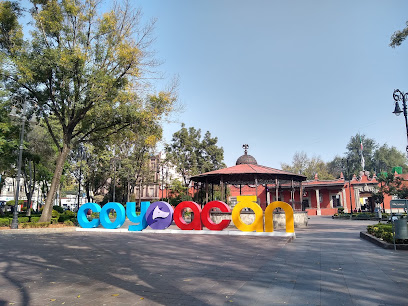
Monumento a Miguel Hidalgo y Costilla.
Discover the Monument to Miguel Hidalgo y Costilla, a majestic tribute in Coyoacán reflecting Mexico's rich history and cultural heritage.
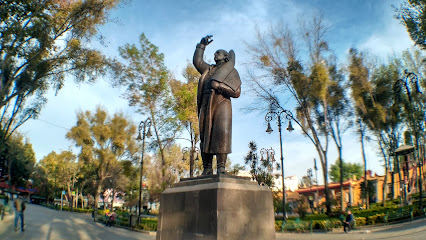
Fuente de Coyoacán
Experience the enchanting beauty and historical significance of Fuente de Coyoacán, a must-visit landmark in Mexico City’s vibrant Coyoacán neighborhood.
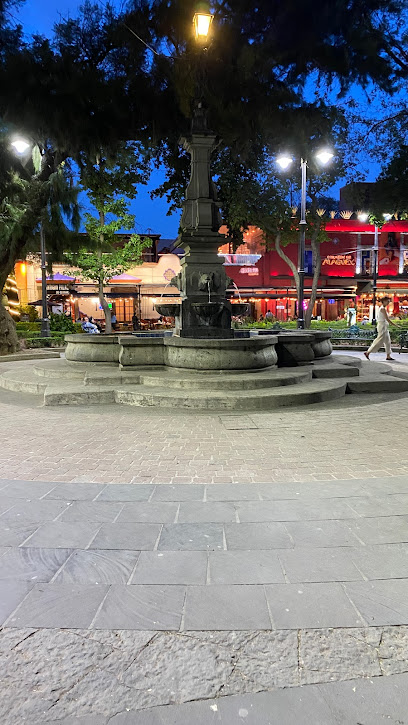
Unmissable attractions to see
Coyoacan Market
Experience the vibrant culture and authentic flavors of Coyoacan at this bustling market in Mexico City, a true taste of local life.
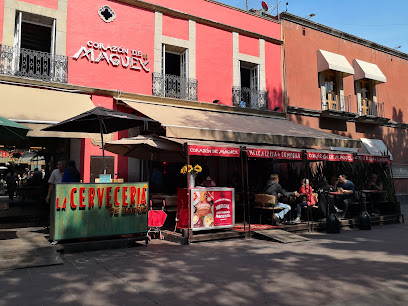
Frida Kahlo Museum
Explore the Frida Kahlo Museum, a vibrant cultural gem in Coyoacán, celebrating the life and art of Mexico's beloved artist.
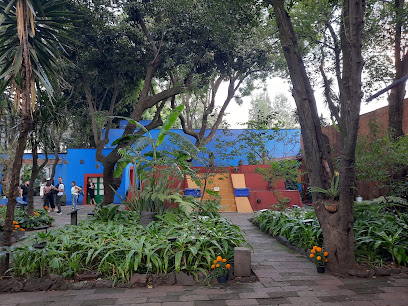
Jardín Hidalgo
Discover the charm of Jardín Hidalgo in Coyoacán, a serene park blending nature with rich cultural experiences in the heart of Mexico City.

Jardín Centenario
Explore Jardín Centenario, a serene garden in Coyoacán, where nature meets culture in the heart of Mexico City.
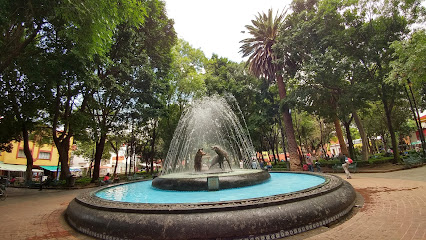
Plaza Coyoacán
Experience the vibrant atmosphere and rich culture of Plaza Coyoacán, a must-visit destination in Mexico City for art and history lovers.
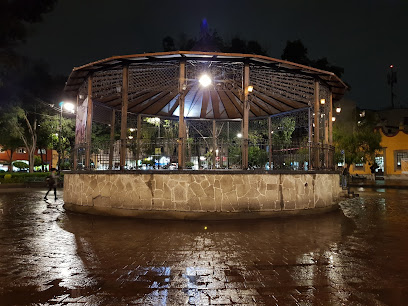
Museo Anahuacalli
Explore Museo Anahuacalli for a profound insight into the ancient civilizations of Mexico, beautifully curated by Diego Rivera.
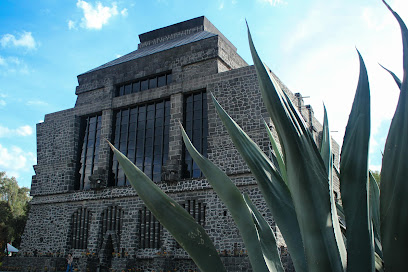
Fuente de los Coyotes
Discover the charm of the Fuente de los Coyotes, a serene fountain in the heart of Coyoacán, surrounded by vibrant culture and history.
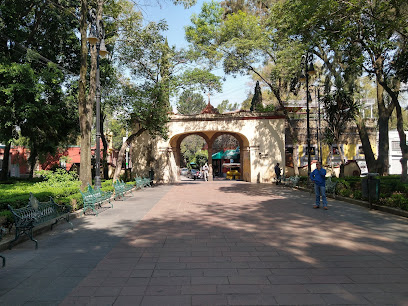
Frida Kahlo Park
Experience the vibrant charm of Frida Kahlo Park, an artistic oasis in Coyoacán, Mexico City, celebrating the life and legacy of Frida Kahlo.
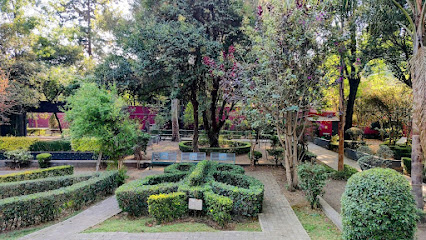
Tranvía Coyoacán
Experience the artistic and historical charm of Coyoacán with a delightful ride on the Tranvía, a must-visit tourist attraction in Mexico City.
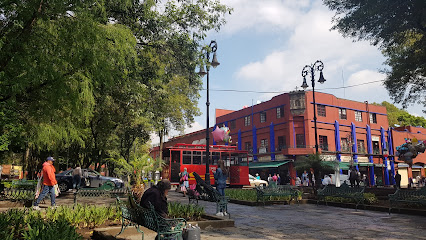
Letras COYOACÁN
Explore the artistic charm of Letras Coyoacán in Mexico City, where history, culture, and vibrant street life come together in a unique experience.
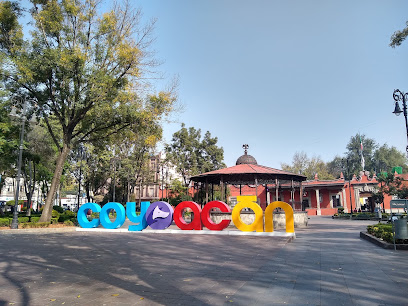
Essential places to dine
La Coyoacana
Discover authentic Mexican cuisine at La Coyoacana in vibrant Coyoacán - where tradition meets flavor in every bite.
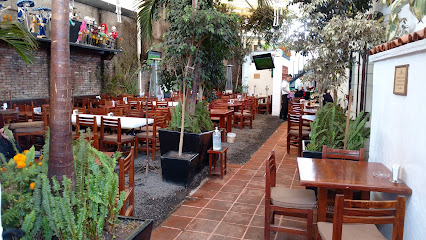
Corazón de Maguey
Experience authentic Mexican breakfast at Corazón de Maguey in Coyoacán—where tradition meets flavor in every bite.
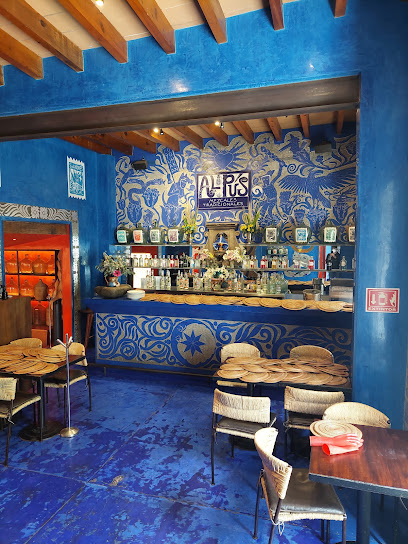
Los Danzantes
Discover authentic Mexican cuisine at Los Danzantes in Coyoacán - where tradition meets modern culinary art.
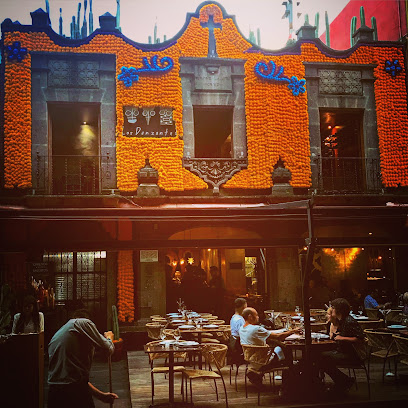
Fonda El Morral
Experience authentic Mexican cuisine in the heart of Coyoacán at Fonda El Morral – where every dish tells a story.
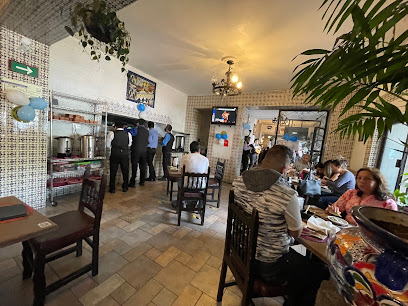
Ave Maria
Discover Ave Maria in Coyoacán: where authentic Mexican and Italian cuisine unite in a charming atmosphere.
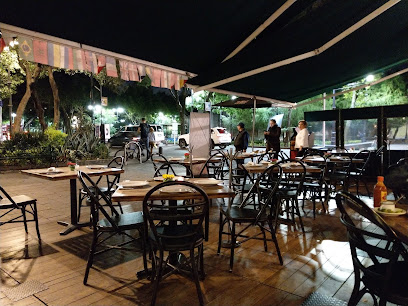
La Casa de Los Tacos Coyoacán
Experience authentic Mexican cuisine at La Casa de Los Tacos in Coyoacán – where every taco tells a story!
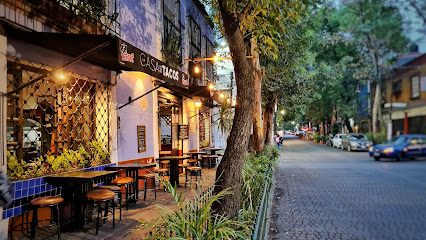
La Cocina de mi Mamá Coyoacán
Experience the heart of Mexican cuisine at La Cocina de mi Mamá Coyoacán - a must-visit destination for food lovers.
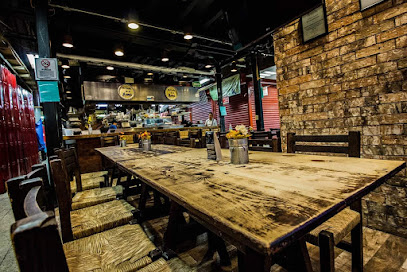
La Pause
Discover La Pause: A unique blend of Mexican cuisine, art gallery, and bookstore in vibrant Coyoacán.
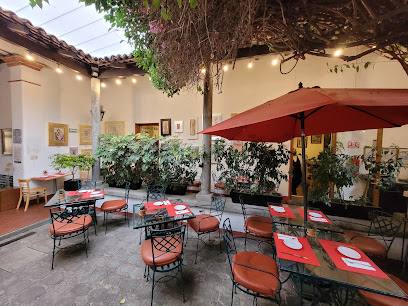
La Vienet
Discover the authentic flavors of Mexico at La Vienet in Coyoacán – your go-to spot for breakfast and delightful café experiences.
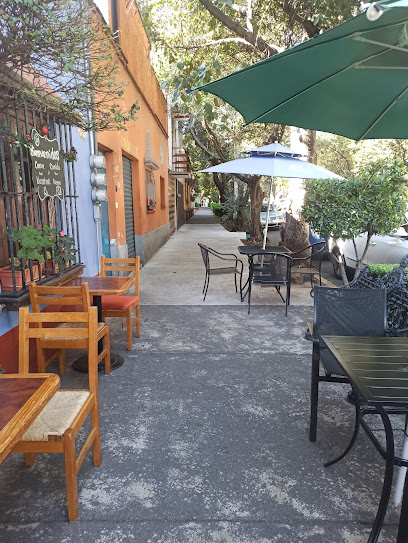
Antiguo Palacio De Coyoacán
Experience authentic Mexican cuisine and rich cultural heritage at Antiguo Palacio De Coyoacán in vibrant Coyoacán.
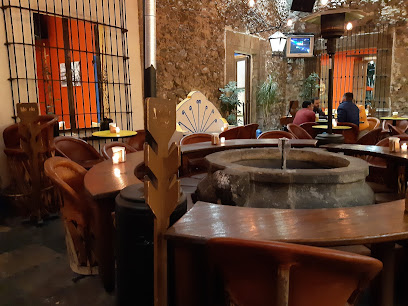
Markets, malls and hidden boutiques
Oasis Coyoacán
Explore Oasis Coyoacán, a vibrant shopping mall blending modern retail with the rich culture of Mexico City's Coyoacán district.
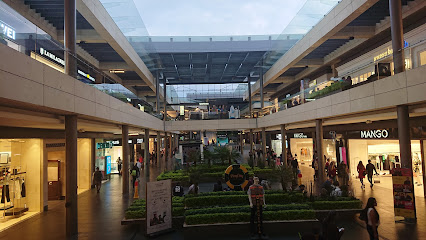
Bazar Artesanal Mexicano
Experience the colorful charm of Bazar Artesanal Mexicano, a premier destination for unique handicrafts and authentic Mexican culture in Coyoacán.
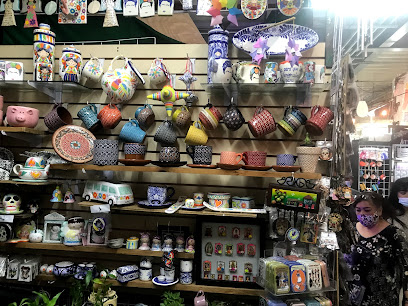
Los Mercaderes coyo
Explore the vibrant Los Mercaderes Coyo, where local artisans meet cultural charm in the heart of Coyoacán, Mexico City.
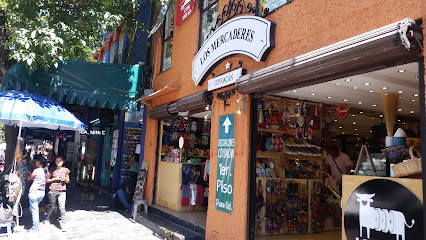
Craftsman House Coyoacan
Explore creativity and craftsmanship at Craftsman House Coyoacan, a vibrant scrapbooking store in the heart of Mexico City’s artistic district.
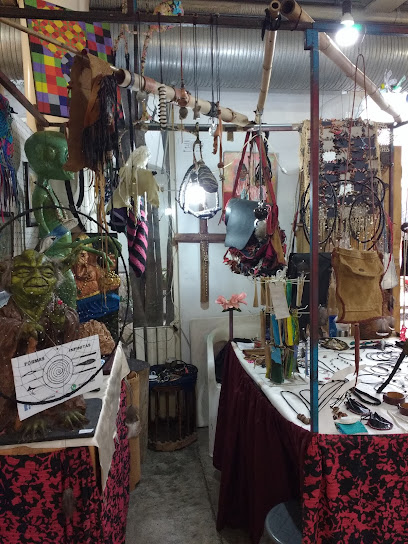
Tienda de Ropa Mercado Coyoacan.
Explore the vibrant Tienda de Ropa Mercado Coyoacan for unique clothing and local fashion in the heart of Coyoacán, Mexico City.
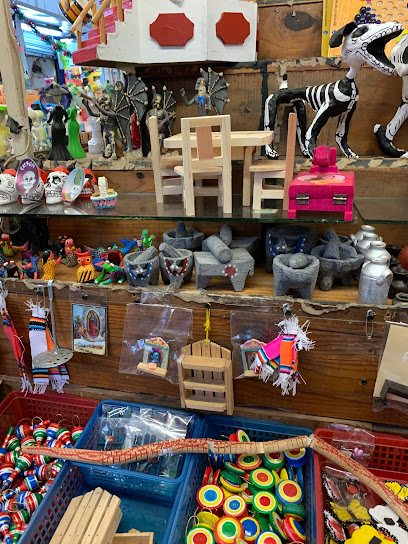
Bazar Coyoacán
Explore Bazar Coyoacán: A vibrant market in Mexico City filled with artisanal crafts, delicious street food, and rich cultural experiences.
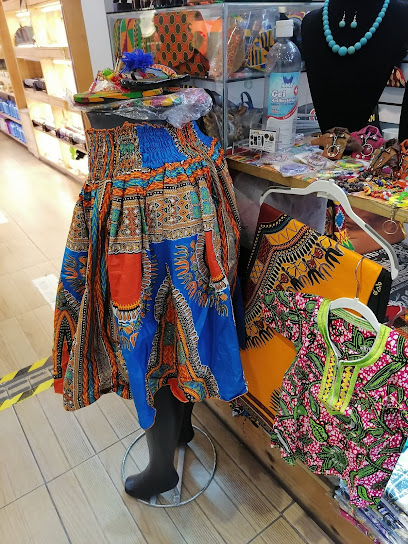
mercado coyoacan boutique betys
Explore the artistic essence of Coyoacán at Mercado Coyoacán Boutique Betys, a unique clothing store filled with local fashion treasures.
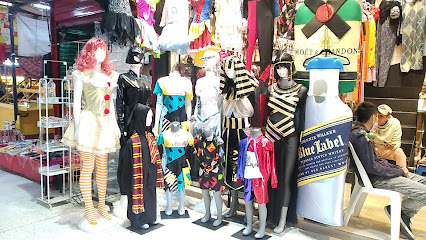
Estación Coyoacán Arte Contemporaneo
Experience the vibrant world of contemporary art and creativity at Estación Coyoacán, a unique gallery and craft store in the heart of Mexico City.
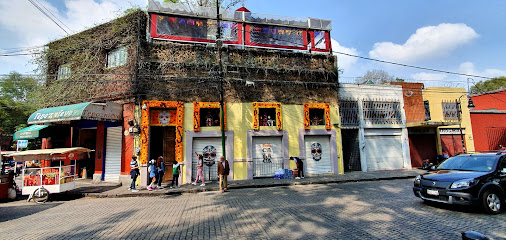
NuMexica Coyoacán
Shop unique local fashion at NuMexica Coyoacán, a vibrant clothing store in the artistic heart of Mexico City, perfect for tourists seeking authentic style.
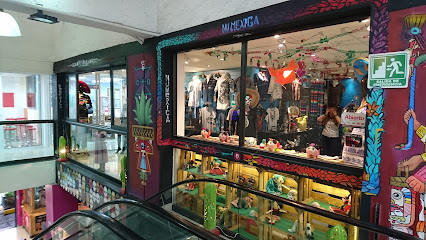
Artesanias de Corazon
Discover the essence of Mexican craftsmanship at Artesanias de Corazon in Coyoacán, where every item tells a story.
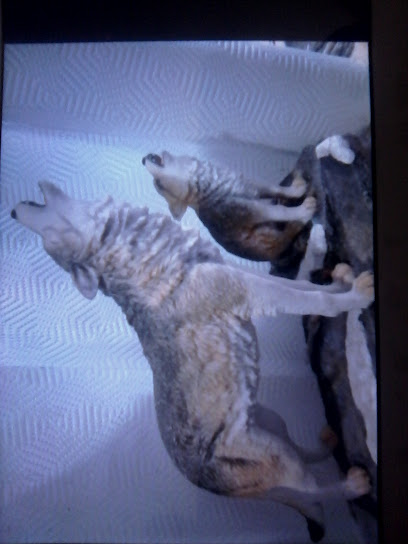
Essential bars & hidden hideouts
La Coyoacana
Experience the vibrant flavors of authentic Mexican grilling at La Coyoacana, a culinary haven in the heart of Coyoacán.
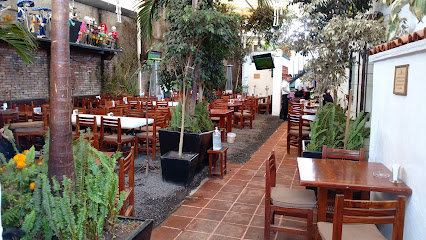
La Bipo
Experience the vibrant flavors of Mexico at La Bipo, a must-visit bar and grill in Coyoacán, known for its delightful cuisine and unique drinks.
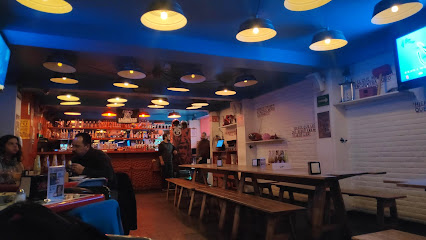
El Hijo del Cuervo
Discover the vibrant culinary scene at El Hijo del Cuervo, a must-visit bar and bistro in Coyoacán, Mexico City, offering delightful dishes and cocktails.
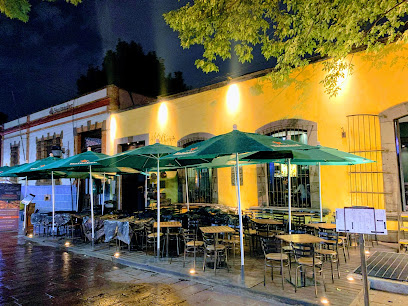
Terraza Aloha
Discover Terraza Aloha, a vibrant bar in Coyoacán featuring a lush terrace and a diverse drink menu, perfect for relaxing in the heart of Mexico City.
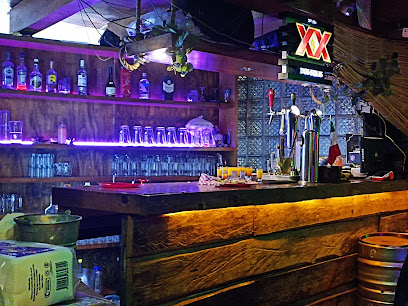
La Celestina
Experience the vibrant flavors of Mexico at La Celestina, a lively bar and grill in the heart of Coyoacán, perfect for food lovers and nightlife seekers.
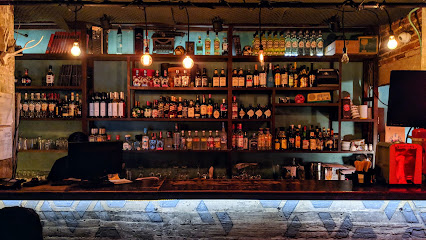
Mezcalero Coyoacan
Experience the essence of Mexican cuisine and mezcal at Mezcalero Coyoacan, where tradition meets innovation in a vibrant gastropub setting.
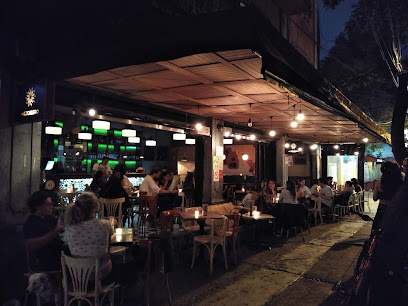
The Cross
Discover the vibrant culinary scene of Coyoacán at The Cross, where delightful grilled dishes meet a lively atmosphere in Mexico City.
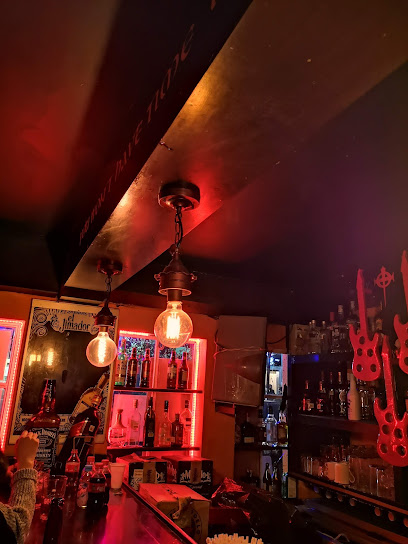
Meson del Buen Tunar (el tradiciona)
Experience the heart of Coyoacán at Meson del Buen Tunar, a cozy bar offering traditional drinks and authentic Mexican ambiance.
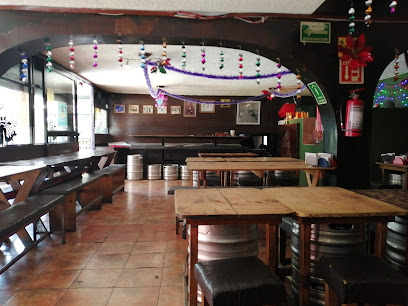
Quetacoatl
Discover Quetacoatl: A lively bar in Coyoacán offering delicious food, craft beers, and a vibrant atmosphere for an unforgettable experience.
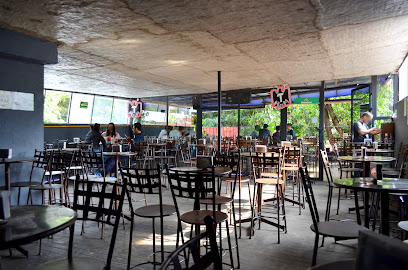
Casa Va'u
Discover the vibrant grill flavors at Casa Va'u in Coyoacán, where delicious Mexican cuisine meets a warm, inviting atmosphere.
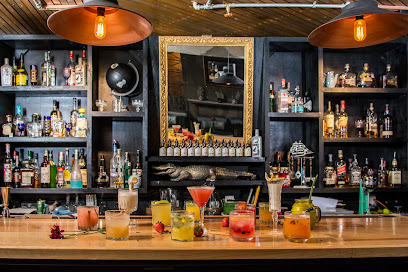
Local Phrases
-
- HelloHola
[oh-lah] - GoodbyeAdiós
[ah-dee-ohs] - YesSí
[see] - NoNo
[noh] - Please/You're welcomePor favor/De nada
[por fah-vor/de nah-dah] - Thank youGracias
[grah-see-ahs] - Excuse me/SorryPerdón/Lo siento
[pair-dohn/loh see-ehn-toh] - How are you?¿Cómo estás?
[koh-moh ehs-tahs] - Fine. And you?Bien. ¿Y tú?
[bee-ehn. ee too] - Do you speak English?¿Hablas inglés?
[ah-blahs een-glehs] - I don't understandNo entiendo
[noh ehn-tee-ehn-doh]
- HelloHola
-
- I'd like to see the menu, pleaseMe gustaría ver el menú, por favor
[meh goos-tah-ree-ah behr ehl meh-noo, poor fah-vor] - I don't eat meatNo como carne
[noh koh-moh kahr-neh] - Cheers!¡Salud!
[sah-lood] - I would like to pay, pleaseMe gustaría pagar, por favor
[meh goos-tah-ree-ah pah-gahr, poor fah-vor]
- I'd like to see the menu, pleaseMe gustaría ver el menú, por favor
-
- Help!¡Ayuda!
[ah-yoo-dah] - Go away!¡Vete!
[veh-teh] - Call the Police!¡Llama a la policía!
[yah-mah ah lah poh-lee-see-ah] - Call a doctor!¡Llama a un médico!
[yah-mah ah oon may-dee-koh] - I'm lostEstoy perdido(a)
[ehs-toy pair-dee-doh(ah)] - I'm illEstoy enfermo(a)
[ehs-toy ehn-fehr-moh(ah)]
- Help!¡Ayuda!
-
- I'd like to buy...Me gustaría comprar...
[meh goos-tah-ree-ah kohm-prahr...] - I'm just lookingSólo estoy mirando
[soh-loh ehs-toy mee-rahn-doh] - How much is it?¿Cuánto cuesta?
[kwan-toh kwehs-tah] - That's too expensiveEsto es demasiado caro
[ehs-toh ehs deh-mah-syah-doh kah-roh] - Can you lower the price?¿Puede bajar el precio?
[pweh-deh bah-har ehl pree-syoh]
- I'd like to buy...Me gustaría comprar...
-
- What time is it?¿Qué hora es?
[keh oh-rah ehs] - It's one o'clockEs la una
[ehs lah oo-nah] - Half past (10)Media (10)
[meh-dee-ah (dheez-eez)] - MorningMañana
[mah-nyah-nah] - AfternoonTarde
[tahr-deh] - EveningNoche
[noh-cheh] - YesterdayAyer
[ah-yehr] - TodayHoy
[oy] - TomorrowMañana
[mah-nyah-nah] - 1Uno
[oo-noh] - 2Dos
[dohs] - 3Tres
[trehs] - 4Cuatro
[kwah-troh] - 5Cinco
[seen-koh] - 6Seis
[says] - 7Siete
[syeh-teh] - 8Ocho
[oh-choh] - 9Nueve
[nweh-veh] - 10Diez
[dyehs]
- What time is it?¿Qué hora es?
-
- Where's a/the...?¿Dónde está...?
[dohn-deh ehs-tah] - What's the address?¿Cuál es la dirección?
[kwal ehs lah dee-rehk-syon] - Can you show me (on the map)?¿Puedes mostrarme (en el mapa)?
[pweh-dehs mohs-trar-meh (ehn ehl mah-pah)] - When's the next (bus)?¿Cuándo viene el próximo (autobús)?
[kwan-doh vyeh-neh ehl proh-ksee-moh (ow-toh-boos)] - A ticket (to ....)Un boleto (a ...)
[oon boh-leh-toh (ah ...)]
- Where's a/the...?¿Dónde está...?
History of Coyoacan
-
Coyoacan's history stretches back to the pre-Hispanic era, where it was an important settlement for the Mexica (Aztecs). It was known as 'Coyoacan' which translates to 'place of coyotes'. The area was a key agricultural hub, with fertile lands supporting the cultivation of maize and other crops. Evidence suggests that the region was home to several small towns and was inhabited by the Mexica before the Spanish conquest.
-
After the Spanish conquest in the early 16th century, Coyoacan underwent significant transformation. The Spanish established a colonial government, and many indigenous structures were replaced with European-style buildings. Coyoacan became a favorite retreat for Spanish nobility, leading to the construction of several grand colonial homes and churches, including the Church of San Juan Bautista, which dates back to the 16th century.
-
In the early 20th century, Coyoacan emerged as a center for intellectual and artistic activity. It became home to notable figures such as the painter Frida Kahlo and muralist Diego Rivera, whose Blue House (La Casa Azul) remains a key attraction. The neighborhood fostered a vibrant arts scene, and many artists and writers were drawn to its bohemian atmosphere, greatly influencing Mexican culture.
-
Coyoacan played a vital role in Mexico's political history, particularly during the Mexican Revolution (1910-1920) and the subsequent political upheavals. The neighborhood became a refuge for exiled leaders and revolutionary figures, including Leon Trotsky, who lived in Coyoacan from 1937 until his assassination in 1940. His residence is now a museum, reflecting the neighborhood's importance in global political history.
-
Today, Coyoacan is a vibrant neighborhood that beautifully blends its rich historical past with modern life. It is known for its cobblestone streets, lively markets, and cultural festivals. The area hosts numerous museums, art galleries, and theaters, making it a focal point for cultural tourism in Mexico City. Coyoacan continues to celebrate its heritage while embracing contemporary influences, attracting both locals and visitors.
Coyoacan Essentials
-
Coyoacán is easily accessible from various neighborhoods in Mexico City. From downtown, you can take Metro Line 3 to Hidalgo Station and transfer to Line 12, which takes you to Coyoacán Station. Alternatively, take a taxi or rideshare service directly, which typically costs around 100-150 MXN. Buses from various parts of the city, including the Centro Histórico and Polanco, also connect to Coyoacán.
-
Coyoacán is best explored on foot due to its charming streets and plazas. Public transport options include the Metro, with Coyoacán Station on Line 3, and several bus routes. Biking is also a popular option, with bike-sharing programs available. Taxis and rideshare services are widely used for longer distances.
-
Coyoacán is generally safe for tourists, but it's wise to exercise caution. Avoid walking alone at night in less crowded areas, particularly around the outskirts. Petty theft can occur, especially in busy markets like Mercado de Coyoacán. Stay vigilant with your belongings, and keep an eye on your surroundings.
-
In case of an emergency, dial 911 for police, fire, or medical assistance. Local hospitals and clinics are available in the area, such as Hospital 20 de Noviembre. It is advisable to have travel insurance that covers emergency situations and medical needs.
-
Fashion: Do wear comfortable shoes for walking and dress modestly when visiting churches. Don't wear flashy jewelry that may attract unwanted attention. Religion: Do respect local customs; when visiting churches like the Church of St. John the Baptist, dress appropriately. Public Transport: Do offer your seat to the elderly or disabled. Don't eat or drink on public transportation. Greetings: Do greet locals with a friendly 'Hola' and a smile. Don't use overly formal titles unless in a business setting. Eating & Drinking: Do try local delicacies like churros and pan de muerto. Don't drink tap water; opt for bottled water instead.
-
To experience Coyoacán like a local, visit the vibrant Mercado de Coyoacán for fresh produce and traditional snacks. Explore the less touristy areas, such as the quaint streets of the neighborhood, to discover local art and crafts. Engage with residents, who are often friendly and eager to share their stories. Don't miss the chance to visit the Frida Kahlo Museum, but be sure to book tickets in advance to avoid long lines.
Nearby Cities to Coyoacan
-
Things To Do in Taxco
-
Things To Do in Puebla
-
Things To Do in Queretaro
-
Things To Do in San Miguel de Allende
-
Things To Do in Acapulco
-
Things To Do in Guanajuato
-
Things To Do in Veracruz
-
Things To Do in Oaxaca
-
Things To Do in Puerto Escondido
-
Things To Do in Guadalajara
-
Things To Do in Ixtapa-Zihuatanejo
-
Things To Do in Puerto Vallarta
-
Things To Do in Chiapas
-
Things To Do in Monterrey
-
Things To Do in Matamoros











